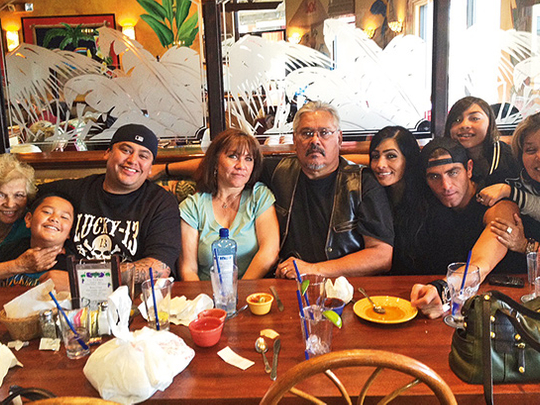
All of us have raconteurs in our midst who have regaled us with tales of people from the past, bringing them alive as they flesh out the characters. So, we get to hear about the exploits of great-grandparents or grand-uncles and aunts whom we have not met and their quirks of character or accomplishments.
My late father was one such story-teller extraordinaire who kept us riveted with his skill in making shadowy figures from the dim past come to life. And, as always happens, these stories were passed down from generation to generation, with lots of embellishments added by the narrator which might have veered from the truth but kept the audience enthralled.
In my family, however, the person who took on the mantle of storyteller had to be careful about the additions made as there is always a spoilsport who will stop you midway and challenge your version. Obviously they have never heard about poetic licence!
But I wonder if Gen Next will continue with this tradition as their interests are very different. They are more future-oriented. But I was pleasantly surprised on a recent trip to the US. One of my fellow travellers was meeting a cousin of hers who had migrated decades ago.
She had with her sepia pictures of relatives whom the cousin had heard of but not seen or met. His grown-up children who had perhaps been to India once or twice were fascinated as the history lesson unfolded. Apart from being able to put a face to a name, they were given glimpses of what these people from the hoary past were like. Anecdotes brought them to life and made them three-dimensional.
However, by the time we realise that this history needs to be recorded for posterity, the storyteller is long gone and our sources have dried up. My nieces and nephews have been regaled by these tales of yore by their grandfather who never tired of repeating his stories.
They would snuggle up next to him in bed and demand more stories from his youth which seemed like fiction because no one really lived in such conditions, did they? By the time they thought of recording this family history, their grandfather had begun losing his memory and neither was he in a mood to go back in time.
Time before internet and smartphones
I remember a sister (who is sadly no more) trying to draw the family tree but it was a project that was doomed to failure with the older generation not easily available or the geographical distance between them and us not easily bridged at a time when there was no internet or smartphones.
I, too, enjoyed the reminiscing when friends of my father dropped in and the conversation veered towards the good old days. They all were army veterans who had lived through the Second World War and their stories were riveting.
I sat there listening to accounts of places and people that I had heard of but not visited or known personally. Most of them had very fond memories of the British officers with whom they served and, for the most part, they had the greatest admiration for them.
Many of them had served overseas and their experiences were fascinating. It is sad that none of them thought of writing a book on all the unique and momentous events they must have witnessed. There are far less interesting people who rush to record their life stories which pale in comparison with what these officers have seen and been through in their lifetime.
It is sad that by the time we become interested in family history and are reflecting on our family identity, the people who could open a window into the past are no longer with us.
“The single most important thing you can do for your family may be the simplest of all: develop a strong family narrative.” (Bruce Feller)
Vanaja Rao is a freelance writer based in Hyderabad, India








